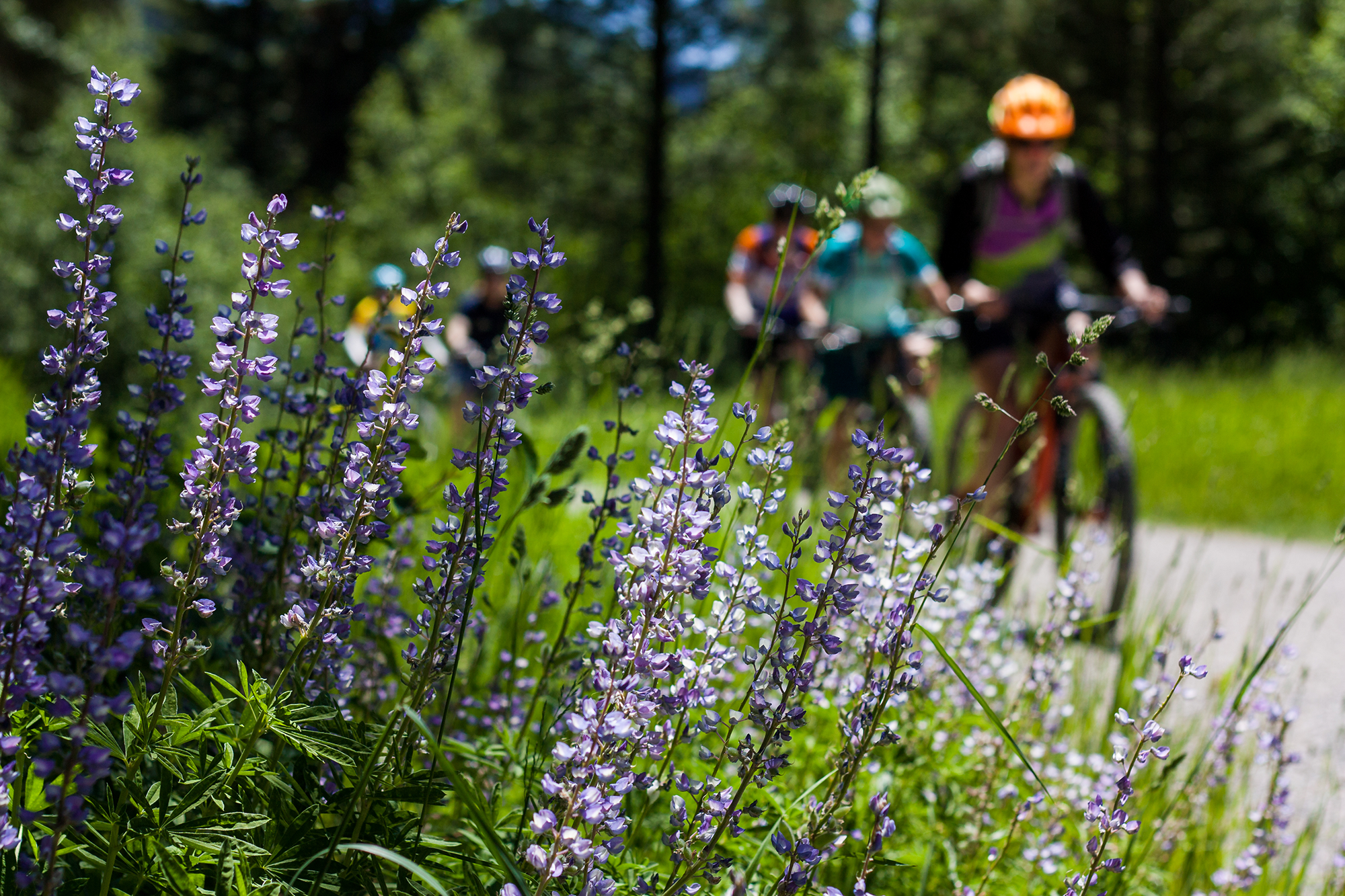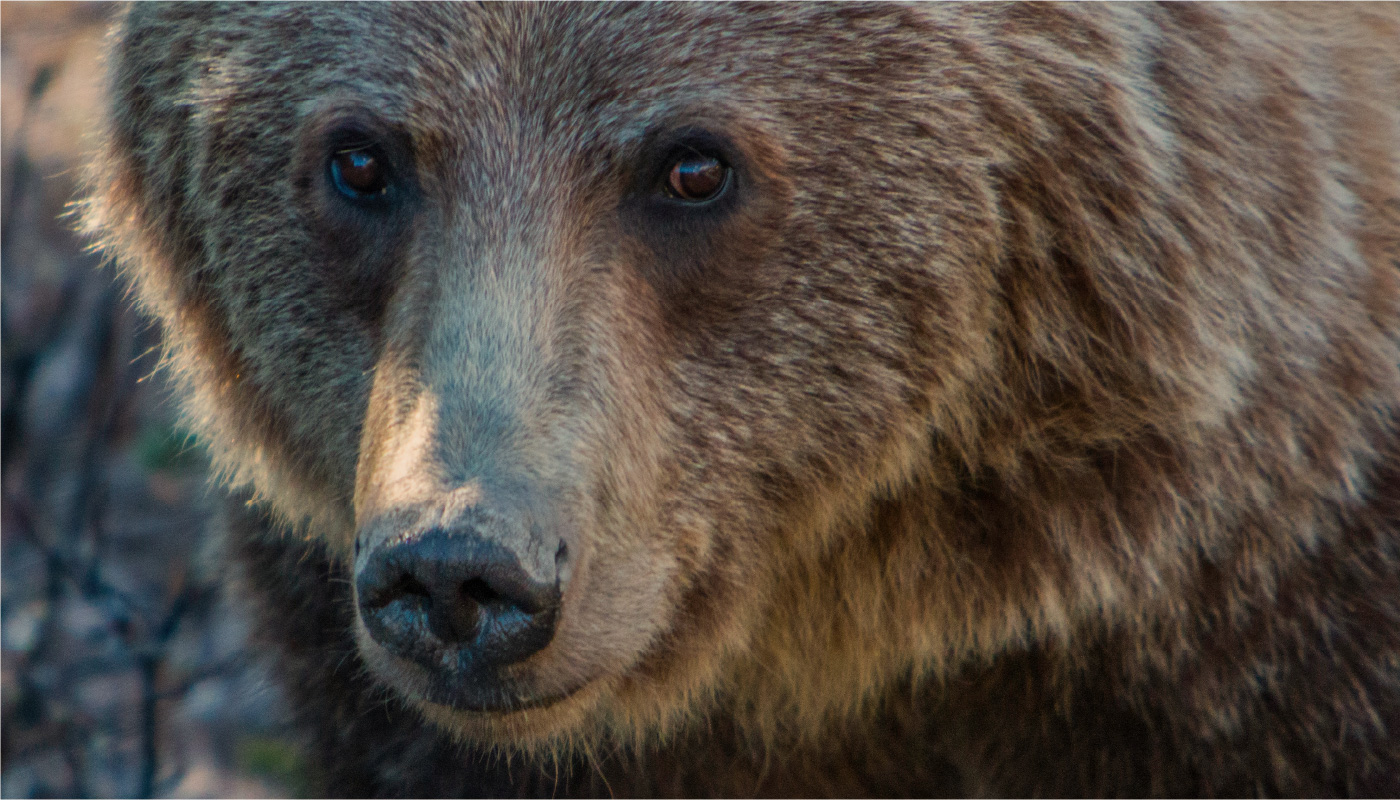Y2Y-UNBC postdoctoral fellows to study crucial conservation topics
It’s an exciting time at Y2Y as our team grows. With new people comes new ideas, added experience and knowledge, and opportunity to learn.
In October 2021, we welcomed two postdoctoral fellows to Y2Y’s conservation science team who bring a wealth of experience in their respective fields plus the collaborative skills and ambition to pursue big, bold applied research projects.

The people part of conservation
From studying the interactions between grizzly bears and people in the rolling prairies of Alberta, to riding her bike in Norway alongside herds of reindeer, Dr. Annie Loosen has found herself in some interesting places over the course of her research career.
Annie completed her Master’s at the University of Alberta, and studied black bear and grizzly bear populations in southwestern Alberta. In 2018, Annie moved to Norway for a PhD where she studied how recolonizing carnivores, roads, forestry practices, and a changing climate affect the way that moose use habitat and find food in Scandinavia.
With a background in both research and wildlife management, Annie has always been interested in how people use landscapes shared by wildlife and people.
This interest in the “human side” of conservation, like many others, started with an appreciation of the outdoors. For Annie, this has included seeing the impacts of both well- and poorly-managed public lands, and how people use certain landscapes, whether for enjoyment or to sustain themselves and their families.
Now, Annie is our recreation ecology post-doc. She leads a collaborative, multi-year research project with Y2Y, the University of Northern British Columbia (UNBC), and partners that aims to understand when, where and how people are recreating in British Columbia’s Upper Columbia and Alberta’s Kananaskis-Ghost regions.
“With Y2Y’s big vision that spans multiple borders, this project fits within the larger scale of nature conservation that we need to think about.”
Dr. Annie Loosen, Y2Y-UNBC recreation ecology postdoc
As someone who also enjoys these landscapes, she wanted to know more about how research can help to better understand how to make decisions that reduce human impacts, while still allowing for the amazing recreation opportunities we have in the Yellowstone to Yukon region.
“One of the big reasons I was drawn to this project is that there are many different players involved,” explains Annie, who will be working with multiple government agencies and recreation and conservation groups.
“As well, with Y2Y’s big vision that spans multiple borders, this project fits within the larger scale of nature conservation that we need to think about.”
Research shows that with more people recreating in more places, more often using motorized and non-motorized means, we risk adding disturbance pressure to wild places and wildlife.

“Over the past several decades, recreation typically hasn’t been researched as much as other human uses and activities. But now, especially with the pandemic, we have seen that poorly planned and managed recreation is becoming even more of a stressor,” says Annie.
“I’m looking forward to helping develop a product that will be useful for people like land or wildlife managers and planners, user groups, and others when making decisions about recreational use and development.”
Studying social science to drive environmental change
Conserving nature goes hand in hand with humanity’s well-being. That’s why “people” is embedded in Y2Y’s mission and work. As societies and ecosystems change — through the climate emergency, extinction crisis, inequity and injustice — our need to understand how conservation affects the planet and people has become even more important.

As conservation social science post-doc, Dr. Devin Holterman leads a collaborative research project with Y2Y and UNBC on conservation social sciences across the Yellowstone to Yukon region. In this work, he will take a closer look at how an increased focus on the human dimensions of conservation can support positive outcomes for people and nature.
According to Devin, social scientists have been studying the relationship between humans and nature with the aim of improving conservation policy and practice for a long time.
“Environmental change doesn’t happen in a vacuum. So, for many conservation social scientists, a crucial component of this work is to critically look at the complex relationships between humans, nature and environmental change,” he says.
“In recent years, there’s been a more concerted effort to bring social sciences into the broader conservation science community. I think the social sciences can add a lot of value and can push the conservation sector into new and hopefully more equitable and just directions.”
Dr. Devin Holterman, Y2Y-UNBC conservation social science postdoc
Devin began his career in journalism, with a degree from Mount Royal University, where he started to become interested in the overlapping environmental crises and their linkages to human development.
He obtained a Master’s in Environmental Studies after conducting research on the social and environmental impacts of the extractive industries in East Africa. Through this research, Devin recognized overlaps between where resource development increasingly occurs relative to protected and conserved areas; he wanted to know more about how and why these decisions are made and how they impact people.
Devin followed this thread of research to Tanzania for his doctoral work. There, he learned how the biodiversity crisis has led conservation spaces to become increasingly fortified and how this impacts the lives of people and wildlife. For instance, such processes have allowed extractive industry actors to gain access and control over some protected and conserved areas but has problematically increased restrictions for nearby communities.
“In recent years, there’s been a more concerted effort to bring social sciences into the broader conservation science community,” says Devin. “I think the social sciences can add a lot of value and can push the conservation sector into new and hopefully more equitable and just directions.”
“It’s encouraging to see organizations like Y2Y demonstrate a real commitment to constructively work towards enhancing our understanding of the human side of nature conservation.”

People play big roles in conservation issues, decisions, and solutions, and conservation is people-powered. We can’t wait to see what Annie and Devin will accomplish over the next few years, adding to our conservation science, practice, and policy work in the Yellowstone to Yukon region.
Welcome to the team!
These research projects are supported in part by funding from Habitat Conservation Trust Foundation, Mitacs Canada, RBC Foundation, The Volgenau Foundation, and Wilburforce Foundation.


